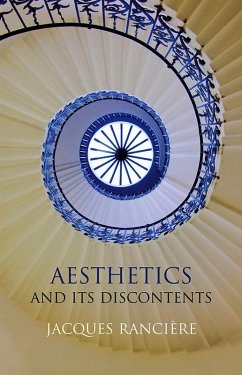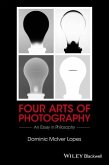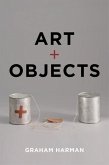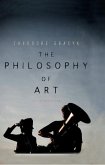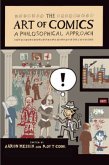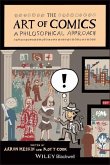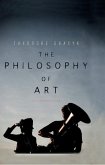Only yesterday aesthetics stood accused of concealing culturalgames of social distinction. Now it is considered a parasiticdiscourse from which artistic practices must be freed.
But aesthetics is not a discourse. It is a historical regime ofthe identification of art. This regime is paradoxical, because itfounds the autonomy of art only at the price of suppressing theboundaries separating its practices and its objects from those ofeveryday life and of making free aesthetic play into the promise ofa new revolution.
Aesthetics is not a politics by accident but in essence. Butthis politics operates in the unresolved tension between twoopposed forms of politics: the first consists in transforming artinto forms of collective life, the second in preserving from allforms of militant or commercial compromise the autonomy that makesit a promise of emancipation.
This constitutive tension sheds light on the paradoxes andtransformations of critical art. It also makes it possible tounderstand why today?s calls to free art from aesthetics aremisguided and lead to a smothering of both aesthetics and politicsin ethics.
But aesthetics is not a discourse. It is a historical regime ofthe identification of art. This regime is paradoxical, because itfounds the autonomy of art only at the price of suppressing theboundaries separating its practices and its objects from those ofeveryday life and of making free aesthetic play into the promise ofa new revolution.
Aesthetics is not a politics by accident but in essence. Butthis politics operates in the unresolved tension between twoopposed forms of politics: the first consists in transforming artinto forms of collective life, the second in preserving from allforms of militant or commercial compromise the autonomy that makesit a promise of emancipation.
This constitutive tension sheds light on the paradoxes andtransformations of critical art. It also makes it possible tounderstand why today?s calls to free art from aesthetics aremisguided and lead to a smothering of both aesthetics and politicsin ethics.
"Riveting. In short compass, Rancière provides a razor-sharp critique of the anti-aesthetics of postmodernism. His ear for the substitution of political substance by empty moralism ? call it: the sublime, the unpresentable, the other, the Shoah ? is unerring. His dissections of Badiou, Lyotard, von Trier's Dogville, and a Christian Boltanski installation are pitch-perfect. For a pointed defense of the role of aesthetics for a radical politics: begin here."
Jay Bernstein, New School for Social Research
"Jacques Rancière's Aesthetics and its Discontents mounts a subtle and spirited defense of modern aesthetic thought, from Schiller to Adorno. Aesthetics is not philosophy seeking to dominate art, as its modish detractors claim. Rather, it is the attempt to think through the artwork's paradoxes and contradictions. In a forceful critique of rival thinkers such as Lyotard and Badiou, Rancière shows that abandoning aesthetic discourse does not mean respecting the integrity of art. Instead, art ends up being reduced to the vehicle of a remorseless ethical demand, or to the cipher of a transcendent truth."
Peter Dews, University of Essex
Jay Bernstein, New School for Social Research
"Jacques Rancière's Aesthetics and its Discontents mounts a subtle and spirited defense of modern aesthetic thought, from Schiller to Adorno. Aesthetics is not philosophy seeking to dominate art, as its modish detractors claim. Rather, it is the attempt to think through the artwork's paradoxes and contradictions. In a forceful critique of rival thinkers such as Lyotard and Badiou, Rancière shows that abandoning aesthetic discourse does not mean respecting the integrity of art. Instead, art ends up being reduced to the vehicle of a remorseless ethical demand, or to the cipher of a transcendent truth."
Peter Dews, University of Essex

